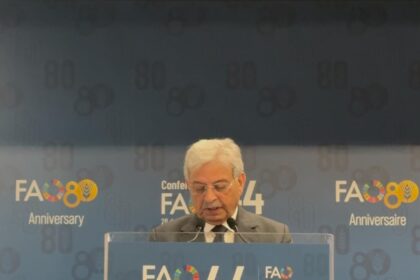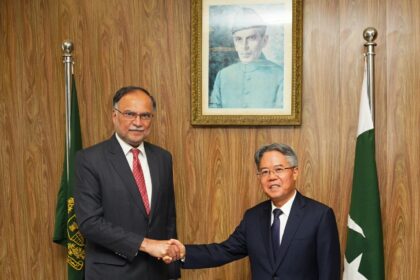Pakistan’s Finance Minister Muhammad Aurangzeb has declared Pakistan’s rapid population growth a national emergency, unveiling a $20 billion commitment over the next decade to address the crisis. Highlighting the urgency of the situation, Aurangzeb identified uncontrolled demographic expansion alongside climate change as two existential challenges threatening the country’s stability, health indicators, educational outcomes, and sustainable development goals.
In his address marking World Population Day in Islamabad, Aurangzeb stated that the government’s vision of reaching a $3 trillion economy by the centennial year of the country’s independence would remain unattainable unless effective, targeted measures in population control and climate resilience are implemented. Drawing attention to Pakistan’s current population growth rate of 2.55%, he cautioned that consequences are already evident, citing alarming health statistics which indicate that 40% of Pakistani children under five years suffer from stunted growth. Aurangzeb underlined that this figure significantly impacts the future viability of Pakistan’s workforce and leadership potential.
The finance minister expressed appreciation for Mufti Muhammad Zubair’s thoughtful advocacy regarding birth-spacing and family planning from a religious perspective. Stressing that population control cannot succeed as a standalone measure, Aurangzeb called instead for an integrated national strategy that incorporates sanitation, clean drinking water provision, adequate nutrition, strengthened education, and informed religious understanding.
Aurangzeb further underscored the urgent need for aligning human development priorities with economic planning. He criticized outdated budgeting frameworks and noted disparities between the federal development budget of Rs 1 trillion and the provinces’ collective Rs 4.2 trillion. He asserted that Pakistan does not lack resources, but rather faces challenges due to insufficient strategic allocation and prioritization. Aurangzeb emphasized the importance of adopting a unified national outlook rather than fragmented provincial approaches.
Announcing a significant international development partnership, Aurangzeb revealed that Pakistan had finalized a new ten-year Country Partnership Framework with the World Bank, focused prominently on population stabilization and climate issues. Under this comprehensive framework, the World Bank will invest $2 billion annually—totaling $20 billion over ten years—of which $600–700 million per year will directly fund family planning, public-awareness campaigns, maternal healthcare initiatives, and birth-control measures.
Aurangzeb stressed that achieving meaningful progress in tackling population growth would require more proactive interventions than merely removing taxes on contraceptives. He called for data-informed policymaking, strengthened multi-sector collaboration, comprehensive awareness campaigns, and precise, outcome-oriented distribution of financial resources. “As finance minister, I cannot afford to be complacent,” he said, emphasizing the need for accountability in ensuring that resources reach their intended recipients and purposes.
At the close of his address, Minister Aurangzeb commended Health Minister Syed Mustafa Kamal for promptly organizing the event within three months of taking office and applauded Mufti Zubair for articulating the religious dimensions of family planning. Aurangzeb pledged full cooperation and assistance from his ministry, emphasizing that effectively tackling the population crisis demands collective, coordinated efforts from governmental institutions, religious communities, civil society organizations, and the private sector.











